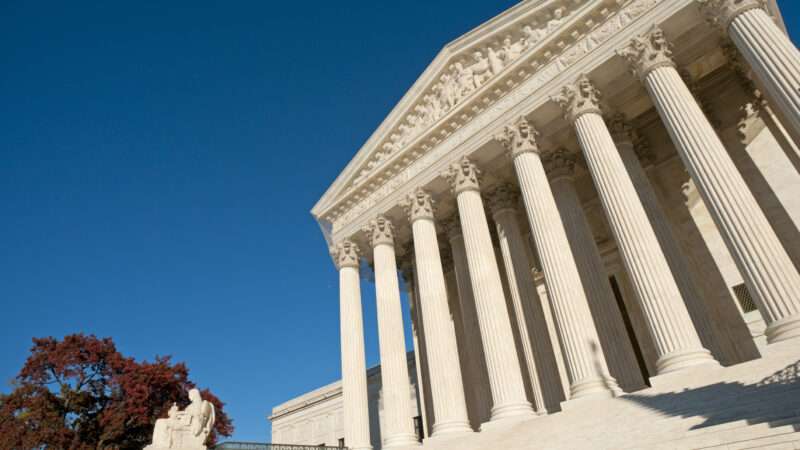
Do you have a right to a prompt hearing after the government seizes your property? The U.S. Supreme Court will consider the question in its upcoming term.
The Supreme Court has agreed to hear Culley v. Attorney General of Alabama, two consolidated cases concerning whether property owners have a due process right to a hearing to determine if police had probable cause to seize their property.
The issue may seem esoteric, but it's hugely important to people who have their property seized by police under civil asset forfeiture laws. Under civil asset forfeiture laws, police can take property suspected of being connected to criminal activity even if the owner hasn't been charged with a crime. Property owners then often have the burden of going to court and proving their innocence, a process that can take months and sometimes years.
Take the two cases at issue: In the first, Halima Culley's son was pulled over by police in Satsuma, Alabama, while driving Culley's car. He was arrested and charged with possession of marijuana and drug paraphernalia. The City of Satsuma also seized Culley's car. It took 20 months, during all of which Culley was bereft of her vehicle, before a state court ruled that she was entitled to the return of her car under Alabama's innocent-owner defense.
In the second case, a friend of Lena Sutton took her car to run an errand in 2019. He was pulled over by police in Leesburg, Alabama, who found methamphetamine in the car and seized it. Sutton also eventually was granted summary judgment on an innocent-owner defense, but not until more than a year after the initial seizure of her car.
These sorts of long delays have been documented elsewhere around the country. In 2018, three Detroit residents filed a class-action lawsuit alleging that Wayne County police and prosecutors seized their cars and forced them to wait months, sometimes years, for a hearing. Two years later, the Institute for Justice, a libertarian-leaning public interest law firm, filed another class-action lawsuit challenging Wayne County's asset forfeiture program, including its practice of not providing defendants with prompt post-seizure hearings.
"The government should not be able to take your car without providing you with a prompt opportunity to challenge the seizure," Dan Alban, a senior attorney at the Institute for Justice, said in a statement. "In criminal cases, after the government arrests you, it must hold a probable cause hearing shortly after the arrest so that a judge can make a preliminary determination about whether the arrest was legitimate. The government should provide the same kind of prompt hearing after it takes your property."
The specific question before the Supreme Court is which test district courts should apply when determining if someone's 14th Amendment right to due process was violated by being deprived of a prompt hearing.
The U.S. Court of Appeals for the 11th Circuit, which has jurisdiction over Alabama, has held that the "speedy trial" test, a particularly vague balancing test created to resolve allegations of Sixth Amendment violations, applies and that due process is satisfied by the civil forfeiture process itself. However, every other circuit that has weighed in on the issue uses a different balancing test established in the 1976 Supreme Court case Mathews v. Eldridge to determine due process violations.
Culley and Sutton both filed lawsuits claiming that the towns violated their Eighth and 14th Amendment rights by depriving them of their cars for months when a pretrial hearing to establish probable cause for the seizures could have quickly determined that they were innocent owners under Alabama law.
The 11th Circuit rejected their claims, finding the state's civil forfeiture process satisfied the requirements for a timely hearing under the speedy trial test.
Alabama Attorney General Steven Marshall filed a brief opposing Culley and Sutton's Supreme Court petition, arguing there is no circuit split on the issue and that the women had no constitutional right to an additional hearing.
"As an initial matter, petitioners' 'innocent owner' status does not entitle them to special solicitude under either test," Marshall wrote. "For centuries, this court has confirmed that in rem civil forfeitures need not inquire into the guilt or innocence of the property's owner—only the use of the property itself in a prohibited act. That Alabama chose to enact statutory protections for innocent owners thus does not entitle those owners to heightened constitutional protections."
The post The Supreme Court Will Decide Whether You Have a Right to a Prompt Hearing After Cops Seize Your Property appeared first on Reason.com.







